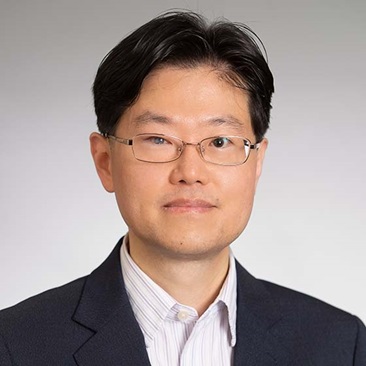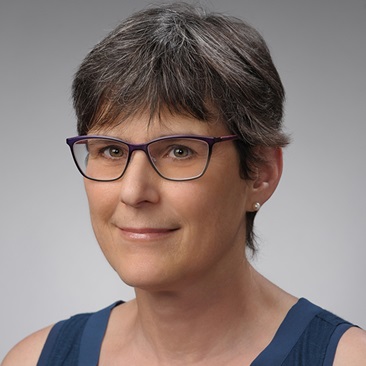African Outlook
January 10, 2020
Born in what would become South Sudan, anthropologist Jok Madut Jok understands that nation’s challenges through a varied set of lenses—all applicable at Maxwell.
Jok Madut Jok is giving a lunchtime talk in Maxwell’s Conversations in Conflict series, describing the chronic political conflict that plagues many African nations, including his own native South Sudan. He observes that resolutions crafted by mediators, as a prescription of outside intervention, rarely have lasting effect.

“The main problem with outside intervention is that [mediators] may not understand the nuances and dynamics of the conflict,” he says. “It’s not owned by the local people.” What is required, he concludes, is a homegrown effort.
His is not just a theoretical perspective. For more than 20 years, Jok has worked with humanitarian organizations, research think tanks, and within the South Sudanese government itself to help bring peace and stability to the country.
He joined the Maxwell faculty this fall as a professor of anthropology and an associate of the Program for the Advancement of Research on Conflict and Collaboration (PARCC, where the lunch talk took place), while also contributing to the MA in international relations curriculum. He weaves together broad interdisciplinary research interests, which include mediation and the peace process, violence as a public health issue, and women’s rights in South Sudan and Sudan, among others.
Jok was a high school student in Sudan when the second civil war broke out in 1983, creating a state of existence that forced him to be politically aware and active. After a year of military service, he earned grants from the Ford Foundation to attend the American University in Cairo and then to pursue graduate studies at UCLA, where he studied medical anthropology. It was while at UCLA that he developed a social scientist’s interest in his native land. He became focused on the impact of war on gender relations and conducted research in Sudan and in refugee camps in neighboring countries.
“When a war ends, everyone scrambles to rebuild the physical infrastructure, but hardly any attention is paid to the people themselves.”
Jok Madut Jok
He later co-founded the Rift Valley Institute to conduct action-oriented social research and advocacy in East Africa, and studied the impact of humanitarian aid in Sudan and the unintended consequences of disaster assistance, including the possibility that aid fuels war. A field study of ethnic-based political violence in Sudan under a grant from the Guggenheim Foundation led to an investigation of the resurgence of slavery, emerging under the cover of war. Today he is considered one of the region's leading intellectuals.
When South Sudan won its independence in 2011, Jok left a faculty post at Loyola Marymount University and became the new government’s Undersecretary in the Ministry of Culture and Heritage, charged with helping the country forge a national identity and unifying more than 70 ethnic groups. “When a war ends, everyone scrambles to rebuild the physical infrastructure,” he says, “but hardly any attention is paid to the people themselves, mending the wounds of war and rebuilding community.”
Jok spent two years helping establish customs and symbols—flags, a national anthem, currency, postal stamps—and developing a national archives, a national library, educational services, and cultural centers.
Then a second civil war broke out, in 2013, and Jok left government. He secured funding from the United States Institute for Peace to establish the Sudd Institute, a policy research center building credible analytical capacity in South Sudan. At the same time, he developed a burgeoning scholarly interest in mediation. “I started looking at peace agreements across Africa to see what ingredients make some of them stick,” he says.
Jok’s broad experience aligns with all his roles at Maxwell, including a range of emphases within the MAIR program. “Jok brings regional expertise on a part of the world that is critically important from a security standpoint,” says John McPeak, a professor of public administration and international affairs, and an Africa scholar. “The conflicts over land, oil, and water in northeast Africa are currently pronounced and likely to grow more acute under the pressure of climate change. He also adds a new perspective on issues of humanitarian relief, post-conflict reconstruction, immigration and refugee flows, and negotiations.”
Jok says he was attracted to Maxwell by the opportunity to apply his scholarship broadly. In Anthropology, he will apply theoretical analysis to human behavior; through PARCC, he'll study peace, mediation, and conflict; and to MAIR students he offers vivid, practical insight into how Africa will (or won’t) change.
“I have finally landed in a place where I can make a home, both personally and professionally,” he says, “It’s the perfect fit.”
By Renée Gearhardt Levy
This article appeared in the fall 2019 print edition of Maxwell Perspective © Maxwell School of Syracuse University. To request a copy, e-mail maxwellperspective@syr.edu.
Related News
School News

Apr 2, 2025
Commentary

Apr 2, 2025
School News

Jan 29, 2025
School News

Jan 21, 2025